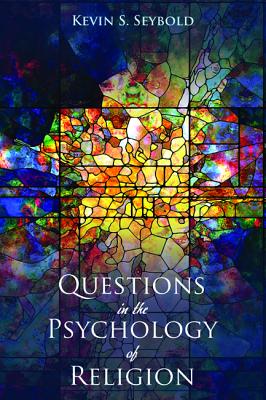What does it means to be human? What is the origin of religious beliefs? Why are we moral creatures? Are religious experiences different from our everyday experiences? Is my brain involved in my experiencing God? What is a soul and do I have one? Is religion a result of evolutionary processes? How might psychology and religion relate? Religious experiences (behaviors, thoughts, and emotions) are determined, at least in part, by natural physical processes. As a result, the empirical methods used in psychology to try to identify the natural mechanisms that influence why we act, think, and feel the way we do can provide important insights into the fundamental and universal phenomena of religion. Drawing on current research from a variety of disciplines, Questions in the Psychology of Religion is appropriate for college students studying psychology, pastors as they help their congregations understand how religion and science might go together, and anyone who learns about recent discoveries in psychological science and wonders how these findings pertain to religion and religious experiences.
| FindBook |
有 1 項符合
Questions in the Psychology of Religion的圖書 |
 |
Questions in the Psychology of Religion 作者:Seybold 出版社:Cascade Books 出版日期:2017-03-16 語言:英文 規格:平裝 / 240頁 / 22.6 x 15 x 1.5 cm / 普通級 |
| 圖書館借閱 |
| 國家圖書館 | 全國圖書書目資訊網 | 國立公共資訊圖書館 | 電子書服務平台 | MetaCat 跨館整合查詢 |
| 臺北市立圖書館 | 新北市立圖書館 | 基隆市公共圖書館 | 桃園市立圖書館 | 新竹縣公共圖書館 |
| 苗栗縣立圖書館 | 臺中市立圖書館 | 彰化縣公共圖書館 | 南投縣文化局 | 雲林縣公共圖書館 |
| 嘉義縣圖書館 | 臺南市立圖書館 | 高雄市立圖書館 | 屏東縣公共圖書館 | 宜蘭縣公共圖書館 |
| 花蓮縣文化局 | 臺東縣文化處 |
|
|
圖書介紹 - 資料來源:博客來 評分:
圖書名稱:Questions in the Psychology of Religion
|











